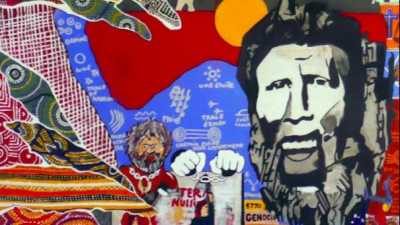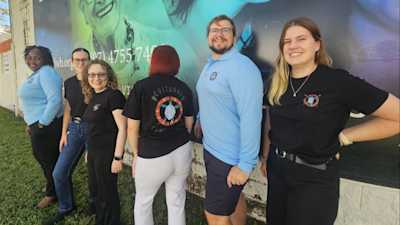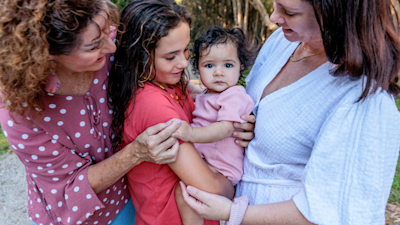We believe reconciliation should not just live in our hearts and minds, but in our hands as well.
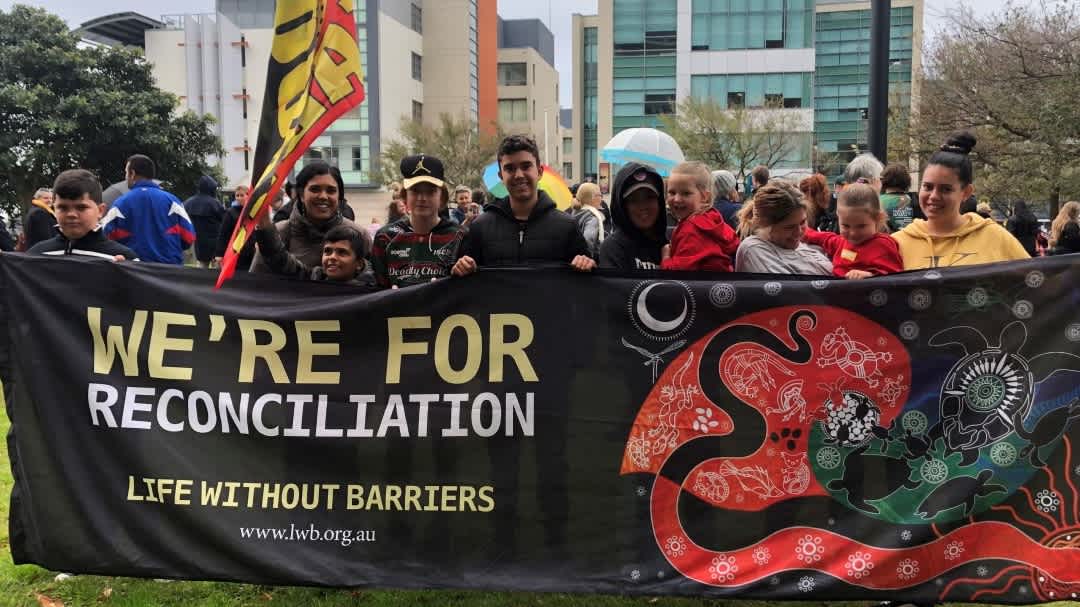
We are committed to supporting Aboriginal and Torres Strait Islander people, their families and the 6% of our staff who identify as Aboriginal and/or Torres Strait Islander in a way that is culturally appropriate, respecting their traditions and deep connection to Country.
For this reason we have worked hard this year to meet the goals set out in our Reconciliation Action Plan.
In the 2018/19 financial year we have:
Partnered with more than 30 Aboriginal and Torres Strait Islander organisations to provide a range of services including cultural experiences for children and young people, traineeships within our workforce, Return to Country trips and sourcing culturally appropriate medical treatment for our young people and their families.
Delivered Aboriginal and Torres Strait Islander Culture training to 2,500 staff through our learning management system and to a further 408 staff through face-to-face training which has created opportunities for staff to build their cultural competency.
Participated in 60 NAIDOC community events and acknowledged Reconciliation Week, Close the Gap Day and National Sorry Day throughout our organisation.
Supported Aboriginal and Torres Strait Islander communities through our buying power. We purchased more than $586,000 worth of goods and services from Aboriginal and Torres Strait Islander businesses thanks to guidance from Supply Nation.
Welcomed 141 Aboriginal and Torres Strait Islander new staff into our team which aligns with our commitment to increase employment opportunities for Aboriginal and Torres Strait Islander people.
Embedding cultural support plans for children in out-of-home care.
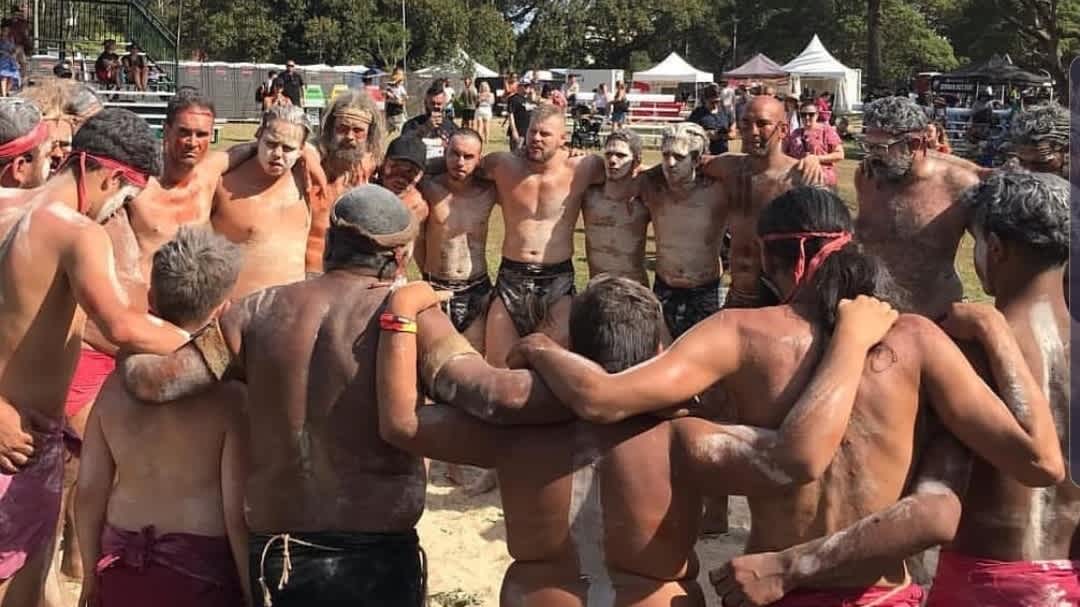
Image: Our Western NSW team organised a 3 day camp for Aboriginal and Torres Strait Islander children in care to attend Yabun in Sydney and see the Thikkabilla dance group (pictured)
We are proud of how our staff are embracing our Reconciliation vision at a local level. We have invested in 10 RAP Committees around Australia that govern our RAP and organise fundraising events and partnerships on a local level. With support from RAP committees many children in out-of-home care have been able to attend cultural activities and camps and some of our disability clients have received funding and support to Return to Country.
Our emphasis on respect has also been reflected in our community involvement. One of our NAIDOC highlights was co-delivering a Darwin Sports Day attended by clients, staff and the community, which included traditional activities such as Gorri, Koolchee, Edor and Tarnambai, Pudakul (Spear Throwing).

Image: Clients and their families participate in Pudakul (Spear Throwing) and other culture activities at the NAIDOC Sports Day in Darwin
While these events are large on our annual calendar, it’s also the small changes made by staff within Life Without Barriers that define our commitment to respect and reconciliation. In the last 12 months we employed eight Aboriginal and Torres Strait Islander young people as trainees across the organisation and hosted six CareerTrackers interns, who are Aboriginal and Torres Strait Islander university students.

Image: Six Aboriginal and Torres Strait Islander university students joined us for internships through CareerTrackers. Here they are with Board Director Natalie Wood (second from left) at the CareerTrackers gala dinner.
In Darwin, the Winnellie meeting rooms have been named in the local Larakia language and our Kalgoorlie Office has translated our values into four local languages for display in their office. In Perth staff recently organised a Smoking and Cleansing Ceremony for a disability accommodation site after Aboriginal staff and clients were affected by a cultural presence in and around the building.

Image: A traditional smoking ceremony taking place at the Life Without Barriers site
We recognise there is always more we can do. The development of our next Reconciliation Action Plan is underway. It has been informed by over 30 co-design workshops that have taken place with staff across the country and it is being guided by support from the PwC Indigenous Consulting team. We look forward to launching our next RAP in 2020.
